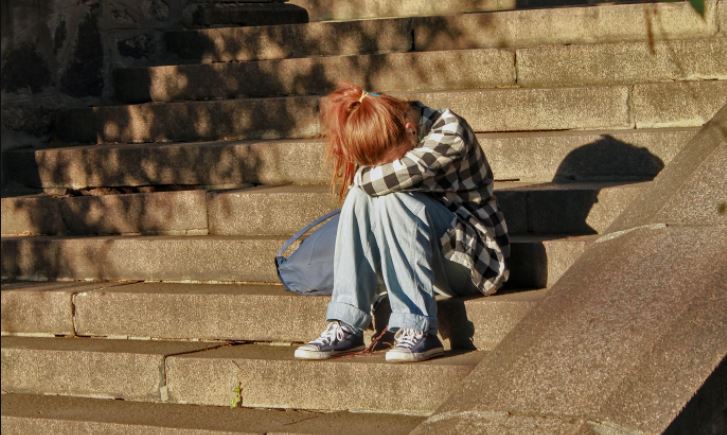Belgium saw a stark rise in the number of children running away from home last year, with an average of three per day – far more than in 2020 when coronavirus measures were stricter.
The figures come from Child Focus, the foundation for missing and sexually exploited children. In 2021, the foundation dealt with 1,188 new disappearance cases. Most (867) concerned young people who had run away from home.
"Behind these figures lie harrowing stories of children and teenagers fleeing or running away from a situation, without knowing where they are going: as long as they can get away," said Child Focus CEO Heidi De Pauw and Chairman François Cornelis in the foundation's annual report.
"Psychologically and mentally, they are stuck and unable to find connections with their loved ones. In many cases, they are even victims of violence or abuse, phenomena that the Covid-19 crisis only exacerbated."
Lockdowns and Covid-19 restrictions
The number of runaway reports was more than 20% higher than in 2020, when the foundation's barometer showed a strong decline. However, this was not due to an improved situation but to the strict Covid-19 restrictions and lockdowns, leaving children literally stranded at home.
"Our barometer faltered then," De Pauw and Cornelis said. "Because just after that, along with the easing of the measures, we suddenly saw the numbers rise dramatically again."
Of all registered disappearances in 2021, 222 were considered "alarming." This is the case, for example, if the runaway is younger than 13, has a physical or mental disability, needs medication or may be in danger.
Related News
- Belgium creates hotline for Ukrainian refugees to report abuse
- Child abuse: Belgium invests in tool to fight ‘alarming increase’ in online images
- 'Paedo manuals': MEPs call for ban on online distribution of child abuse instructions
Other disappearance cases were mainly about possible international child abductions by parents (139). For the second year in a row, the number of cases in this area dropped, but this is likely also due to the pandemic, particularly to "the measures in the different EU Member States that made long-term travel difficult or impossible," said Child Focus.
The foundation also opened 98 cases on the disappearance of unaccompanied minors, who are much harder to find than other missing children.
"These are vulnerable young people who often have a traumatic history, are in an unstable living situation, lack a family environment and have a great need for psychological support and practical guidance," said Child Focus. "They run a high risk of becoming victims of human trafficking and various forms of sexual or economic exploitation."
Sexual exploitation
In addition to disappearance cases, Child Focus also handles cases of sexual exploitation of minors. The number of cases, which had skyrocketed in 2020, remained at that high level in 2021: 2,467 such cases were opened – twice as high as in 2019.
The vast majority of cases concerning sexual exploitation involve images of sexual abuse of minors (often called child pornography). Last year, 2,147 cases were opened, with sometimes hundreds to thousands of images behind a report. Via Arachnid, a tool that proactively searches for images of child sexual abuse on the internet, more than 55,000 images were analysed, "of which 34,266 were considered to be images of child sexual abuse."
Other files in the "sexual exploitation" category refer to minors in prostitution (57 cases), transgressive sexting where sexual images are distributed without consent (129 cases), sextortion or extortion with nude images (91 cases) or grooming, which is a process when an adult deliberately approaches minors for sexual purposes (43 cases).
In Belgium, the sexual exploitation of minors in prostitution is "a hidden and complex phenomenon" that is often not detected or reported. There are no centralised data and the offer of paid sexual services is increasingly shifting to social media, making it even more difficult to assess the phenomenon correctly.
Anyone who wants to report a disappearance or sexual exploitation can do so on Child Focus' free emergency number 116 000 or through the website.

